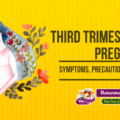
First of all, Congratulations on the great news of your pregnancy. We know, that with all the excitement and happiness comes a lot of questions especially: What diet I should follow?
This is essential to follow a healthy diet at any time in your life. But it becomes crucial to eat best during pregnancy for the growth of your baby. It is because a healthy and balanced diet will nourish, grow, and maintain a healthy weight.
Scroll down to read more tips on how to make a habit to work on your healthy diet for the growth of your new family member.
How to Follow a Balanced Diet Throughout Pregnancy?
Here is a tip: A well-balanced and nutritious diet is one that includes all the essentials of healthy food.
Fruits and Vegetables
The best diet includes fresh, frozen, and dried fruit and vegetables. During suppertimes, half of your plate must contain vegetables and fruits.
Vegetables
For the finest growth of your baby start eating salads, dry leafy greens, and dried vegetables. During your mealtime, half your plate must contain vegetables.
Grains
Whole grains are those grains that do not go through processing and mostly contain grain kernels. Take your meals on time and ensure that half of your grain serving comes from whole grain. Examples of these include barley, oats, brown rice, and bulgur.
Protein
Consume rich protein in your daily diet. Like, poultry, fish, eggs, beans, nuts, poultry, and seeds.
Dairy
Make sure you choose pasteurized dairy products. Calcium is a crucial essential for a healthy diet like cheese, milk, and plain yogurt.
Oils and Fats
Constrain yourself from taking the solid fats, like animal sources such as duck fat. Choose fats like fish, avocados, and nuts. Oils like Olive Oil and canola are best to use.
Vitamins and Minerals every Woman should take During Pregnancy
Here is a list of Important Vitamins and minerals you should take throughout your pregnancy.
Calcium
Calcium is essential for the growth of your baby as well as for your health. It helps in building your baby’s bones and teeth- mark around 1,000 mg daily. The most common sources are plain yogurt, cheese, and dark green leafy vegetables.
Iron
Plan to take daily 27 mg of Iron. You can take it from lean cuts of red meat, poultry, as well as peas and beans. This process will help to build red blood cells in transporting oxygen to the growth of your baby.
Iodine
For the healthy development of your baby’s brain must take 220 mcg of iodine daily. For this, sources like seafood, dairy products, meat, and eggs are essential.
Vitamin A
The food that contains Vitamin A are sweet Potato and green leaves which help in the growth of your baby’s bones and healthy eyesight and skin. During your pregnancy, you must take 770 mcg a day.
Vitamin C
For the development of the baby’s healthy gum, teeth, and bone development consume 85 mg of vitamin C daily. Vitamin C sources are citrus fruits, broccoli, tomatoes, and strawberries.
Vitamin D
While pregnant, you should consume 600 international units of Vitamin D such as salmon and sardines. It will help in the growth of your baby’s bones and teeth as well as eyesight and skin.
Vitamin B6
For the formation of the baby’s red blood cells, you should take 1.9 mg a day. Whole grain cereals, Beef, and bananas are the best sources of vitamin B6.
Vitamin B12
The vitamin B12 has its benefits for the formation of red blood cells to maintain the nervous system of your little one. The significant sources are fish, meat, poultry and milk will help you achieve the target 2.6 mcg per day.
Folic Acid
For the pregnant mothers the folic acid is crucial. This vitamin B controls the defects of baby’s brain and spine. Moreover, it also helps in the overall growth of the Placenta and fetus. The sources of folic acid are dark green leaves, beans, and orange juice in your daily diet. It is recommended to take 600 mcg on a daily base.
How could I be Confident that I Am Taking Enough Folic Acid?
Obviously, it is not easy to take 600 mcg of folic acid from food alone, the mothers must take daily prenatal vitamins or folic acid supplements with at least 400 mcg to complete their cycle. Here is an important point, start taking these supplements before you are planning a pregnancy. Contact your healthcare consultant to provide you with the right supplement.
